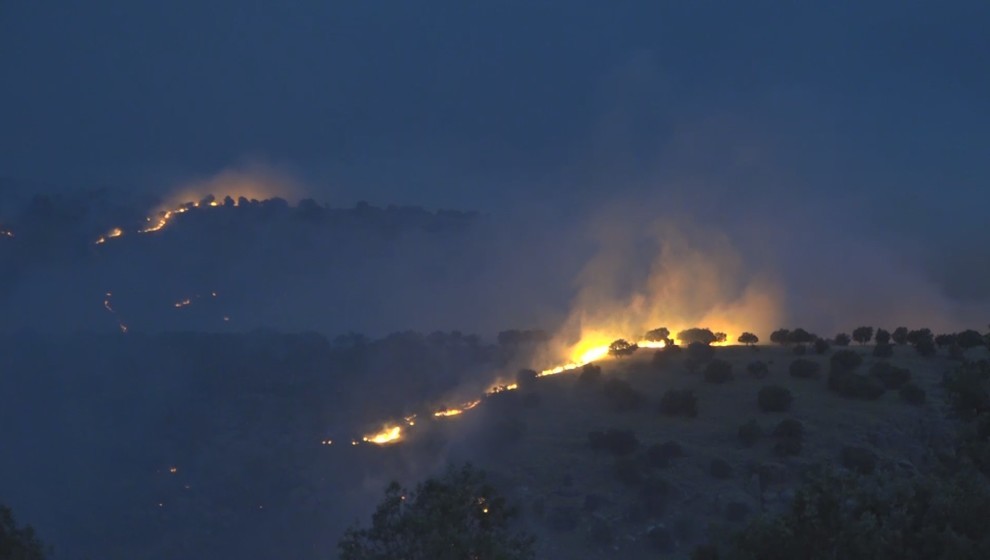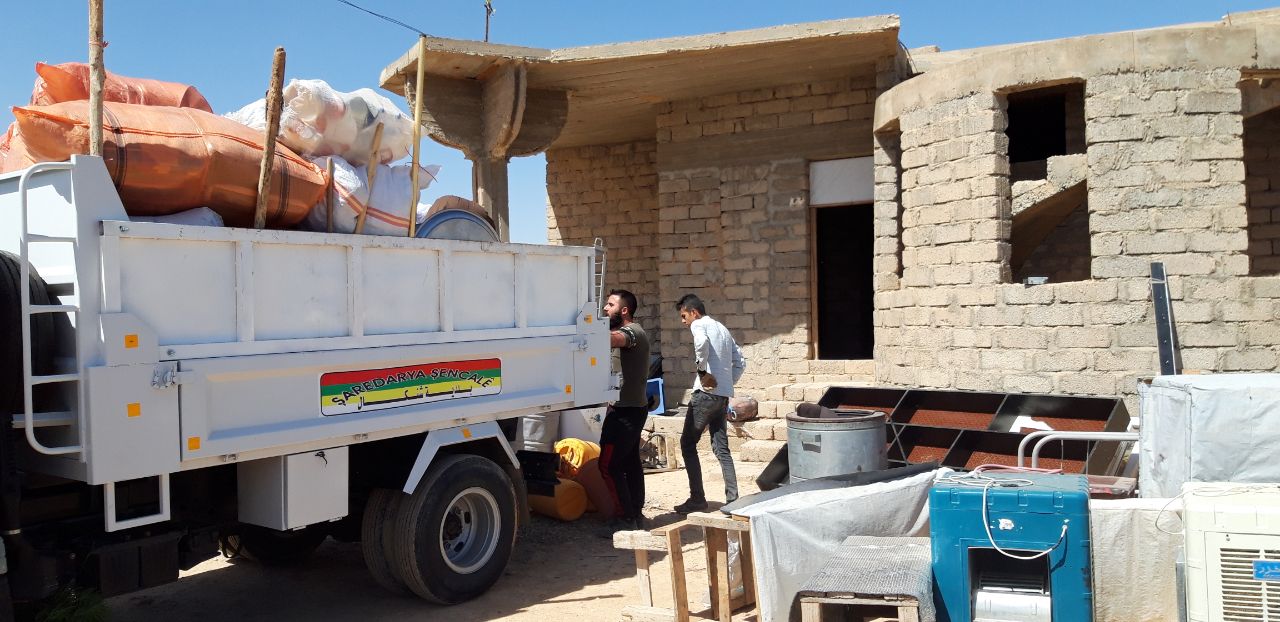The return of the Internally Displaced Persons (IDPs) from the Kurdistan Region to Sinjar has been hindered by the fears of the Turkish airstrikes in Sinjar.
The recent Turkish air strikes on June 14 happened at a time when dozens of IDPs had just returned to their hometown, Sinjar.
Asknadar Mohammed Amin, head of the office Iraqi ministry of migration and displacement in Duhok, told KirkukNow that, “No IDPs has visited us to issue their return approval since the Turkish airstrikes, and those who are returning now have received their license before the airstrikes.”
Meanwhile, the official data of Sinjar local administrati reveals that IDPs return to Sinjar was on the rise, to the degree that over 250 families moved back to Sinjar from the IDP camps in Duhok within 10 days.
“IDPs return has been halted for two reasons; the Turkish airstrikes and the deployment of the Turkish commando forces to Haftanin area in Zakho district, [Duhok],” Amin said.
Turkish aircrafts have targeted Sinjar multiple times on the pretext of the presence of the Kurdistan Workers Party forces (PKK) in the district.

Mount Sinjar are burning as a result of the Turkish bombardment. Photo: Reuters
Jalal Ahmad Mto, head of Hababi tribe in Sinjar, said that, “we have expressed our concern to the relevant authorities against the bombardment because we will not be silent whatsoever. We will not also accept the silence of federal government and the Kurdistan Regional Government.
Mto added that the airstrikes have posed threats to people and no IDP families is ready to return until the disputes are resolved.”
The majority of the Ezidis of Sinjar district and Nineveh province still live in displacement and have not been able to return to their homes. Ezidis comprise 30 per cent out of the 787,000 IDPs who have migrated to the Kurdistan Region of Iraq, according to statistics of the Joint Crisis Coordination center (JCC) of the KRG.
Jalal Khalaf, the commissioner Grozir sub-district in Sinjar, said that, “surely, the airstrikes have left effects on the return of the IDPs… before the bombardment, tens of family had returned daily, which is not the case now.”
Turkey has continued the airstrikes although the Iraqi government has called on the country to respect Iraqi sovereignty.
“Let’s not exaggerate the bombardment because the mountainous areas have been bombarded for tens of year and life has not stopped,” Khalaf claimed.
As a result of the bombardment, four members of the Sinjar Resistance Units (YBS) were wounded, three vehicles and a wheel loader were burned and a wide area of agricultural land was destroyed by fires,
Fahad Hamd, the acting commissioner of Sinjar, earlier told KirkukNow that, “Turkey aims at spreading fear among our people, so that they will not return to their hometown. That is why they bombard the area on the pretext of the presence of YBS forces.
The Ezidi minority were brutally attacked and their children and women were enslaved by the Islamic State militants in August 2014, when their town, Sinjar, 120 km western Mosul, fell under the control of the IS groups. The district was retaken from the IS in 2015.





